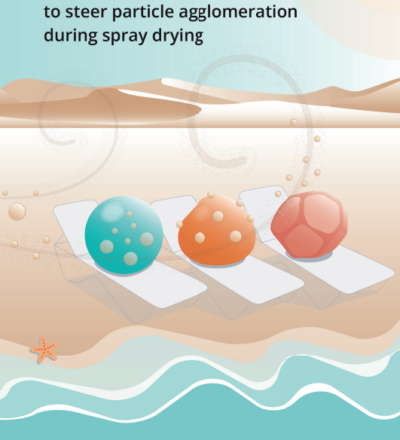Large scale food processes allow mass-production of well-preservable food materials, such as powders produced by spray drying. However, the food industry is consuming a lot of energy, and drying is one of its most energy consuming processes.
During spray drying, countless very small droplets are contacted with hot air to dry. The droplets interact, resulting in coalescence, agglomeration or bouncing. Agglomeration is an important factor for steering towards high product quality. It generally improves the flowability and reconstitution behavior of a powder. An insufficient level of agglomeration
can lead to off-spec product formation, dust formation and fouling. This all leads to an unnecessary increase in the energy consumption of the powder production chain. Despite its widespread use, optimal drying and agglomeration protocols in spray drying are still established via empirical procedures. Mechanistic understanding of droplet drying and agglomeration during spray drying can contribute to more optimal agglomeration protocols for spray drying.
Therefore, the overall aim of this thesis was to characterize the physical phenomena underlying the drying and agglomeration behavior of droplets during spray drying via advanced single droplet drying experimentation.
Download your free copy
Our publications are free to access. Simply provide your first name and email address to download.
